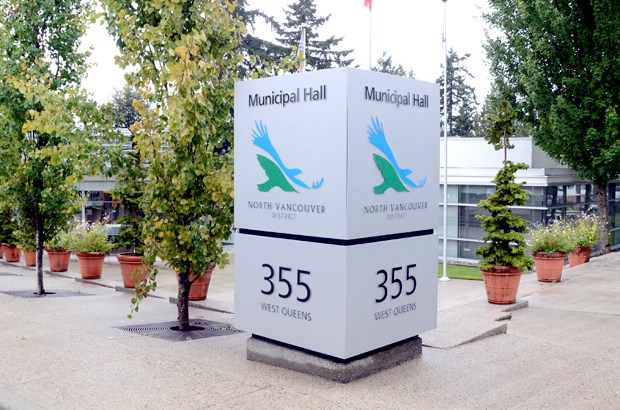Developers may be digging deeper into their pockets in the District of North Vancouver following council’s unanimous decision to boost development cost charges at a Feb. 5 meeting.
Any commercial project that puts more stress on the district’s roads and sewers is subject to cost charges, which the district has been collecting since 1998.
The district will charge $28,035 for each bedroom in a single family residence, an 80 per cent increase from 2013 rates.
However, a homeowner who tears down an old house and builds a $5-million home “isn’t writing the same cheque” to the district, noted Coun. Mathew Bond.
The reason for the seeming discrepancy is that a replacement house doesn’t add additional strain on water or sewer, Coun. Robin Hicks responded.
Commercial developments will face the biggest hike, with DCCs reaching $121 per square metre, more than doubling 2013 rates.
Developers building multi-family apartments are slated to pay $154 per square metre, up from $97 in 2013. For a 700-square foot apartment, a developer would owe the district about $10,000.
Aside from boosting DCC rates three times in accordance with the Vancouver consumer price index, council’s recent vote represented the first major overhaul of DCCs in 2013.
The hike is largely in response to high construction and land costs as well as new road projects in district centres, according to a district staff report.
That money is expected to pay half the district’s estimated $311-million infrastructure tab through 2030.
The outstanding bill for district taxpayers is expected to be $152 million.
Waterworks and roads account for about $170 million of those infrastructure costs while parks account for approximately $74 million.
DCCs are distinct from community amenity contributions, which are fees levelled on developers for rec centres, public art, childcare and affordable housing. DCCs “may reduce a developer’s ability to contribute towards negotiated CACs,” according to a district staff report.
The two fees “tend to work in balance,” said Coun. Roger Bassam.
“We have more flexibility as a community using CACs.”
District council retains the option of forgiving DCCs on not-for-profit rental housing and developments designed to have a small environmental impact.
The district’s residential DCC rates will be lower than fees in Surrey, Langley, Richmond and Coquitlam, according to the report.
While she supported the rate increase, Coun. Lisa Muri suggested there was still a question to be answered: “Is growth paying for itself?”
The increase is expected to come into effect in April following approval from B.C. Inspector of Municipalities.



